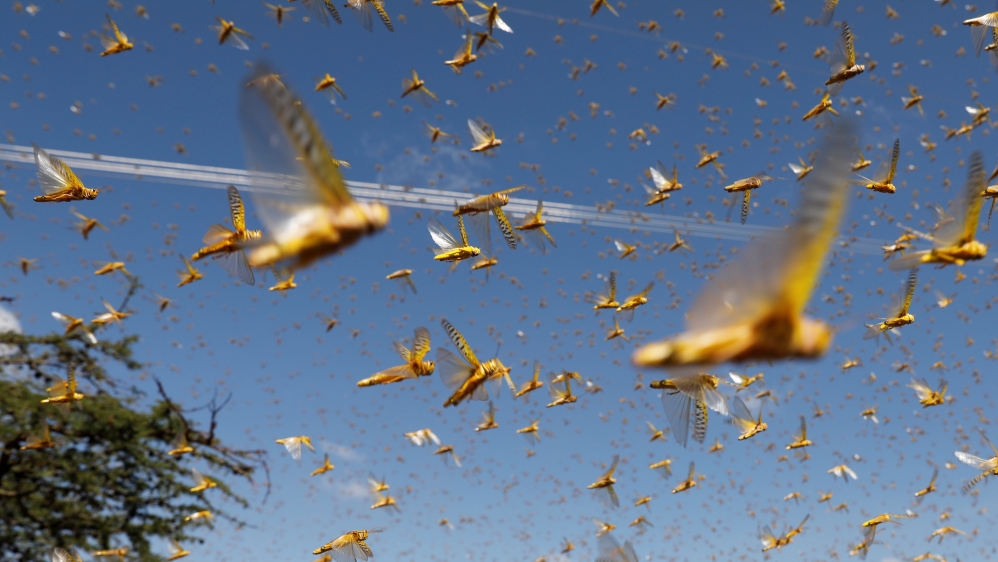New Delhi: A new wave of locust attacks has alarmed India’s farmers. Experts have also warned of extensive crop losses if authorities fail to curb fast-spreading swarms by June. The monsoon rains spur rice, cane, corn, cotton and soybean sowing.
Locust menace
Desert locusts have engulfed around 35,000 hectares in India’s seven heartland states. The swarms have threatened to destroy large lands full of agricultural produce including vegetable and pulse crops. Government officials and farm experts have warned that the menace needs to be immediately attended to.
Despite large-scale infestations, the government and agricultural experts do not foresee major crop damage for now. This is because now is the lean season. It is the gap between the previous harvest and the next planting season.
Expert opinion
However, experts have said that the federal and state governments will have to stop locusts in their tracks in the next couple of week. This has to be done to ensure that swarms do not end up devouring summer crops.
“Despite the unprecedented scale of the locust attack, we haven’t seen any major crop loss. However, we’ve got a very short window to tackle the problem. Otherwise, we won’t be able to save our summer crops,” said Bhagirath Choudhary an agriculture expert. Choudhary incidentally is also the director of the South Asia Biotech Centre, a non-profit scientific society.
States affected
India is battling its worst desert locust outbreak in decades. Infestations are radiating through the states of Gujarat, Rajasthan, Maharashtra, Madhya Pradesh, Punjab, Haryana and Uttar Pradesh. Higher than normal temperatures have helped locusts spread more rapidly, Choudhary said.
Steps taken by government
Earlier this year, farmers salvaged their wheat and oilseed crops from a previous locust scourge.
India is determined to tackle the problem by bolstering the Locust Warning Organisation (LWO), said Kailash Choudhary, the state minister for agriculture. The government has beefed up the LWO workforce. It has also bought new equipment and vehicles to survey and spray insecticides, he said.
Agencies
